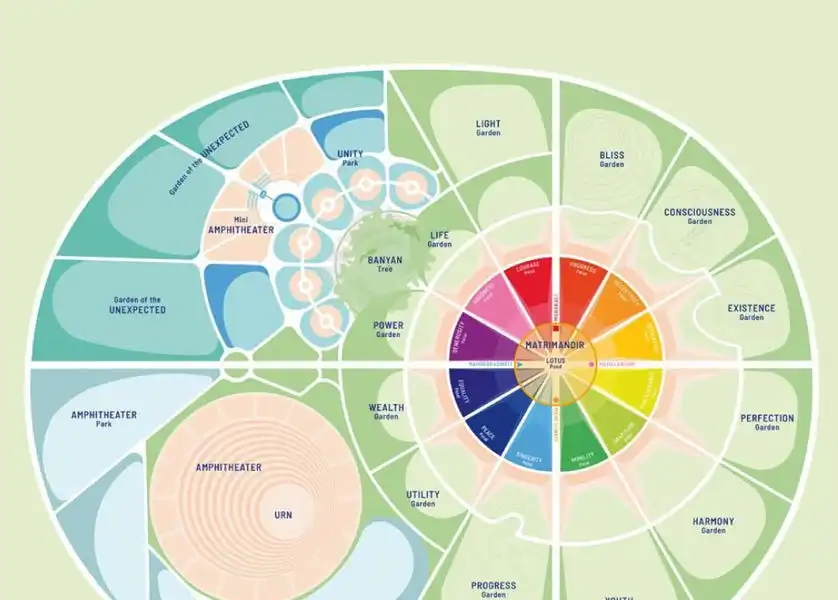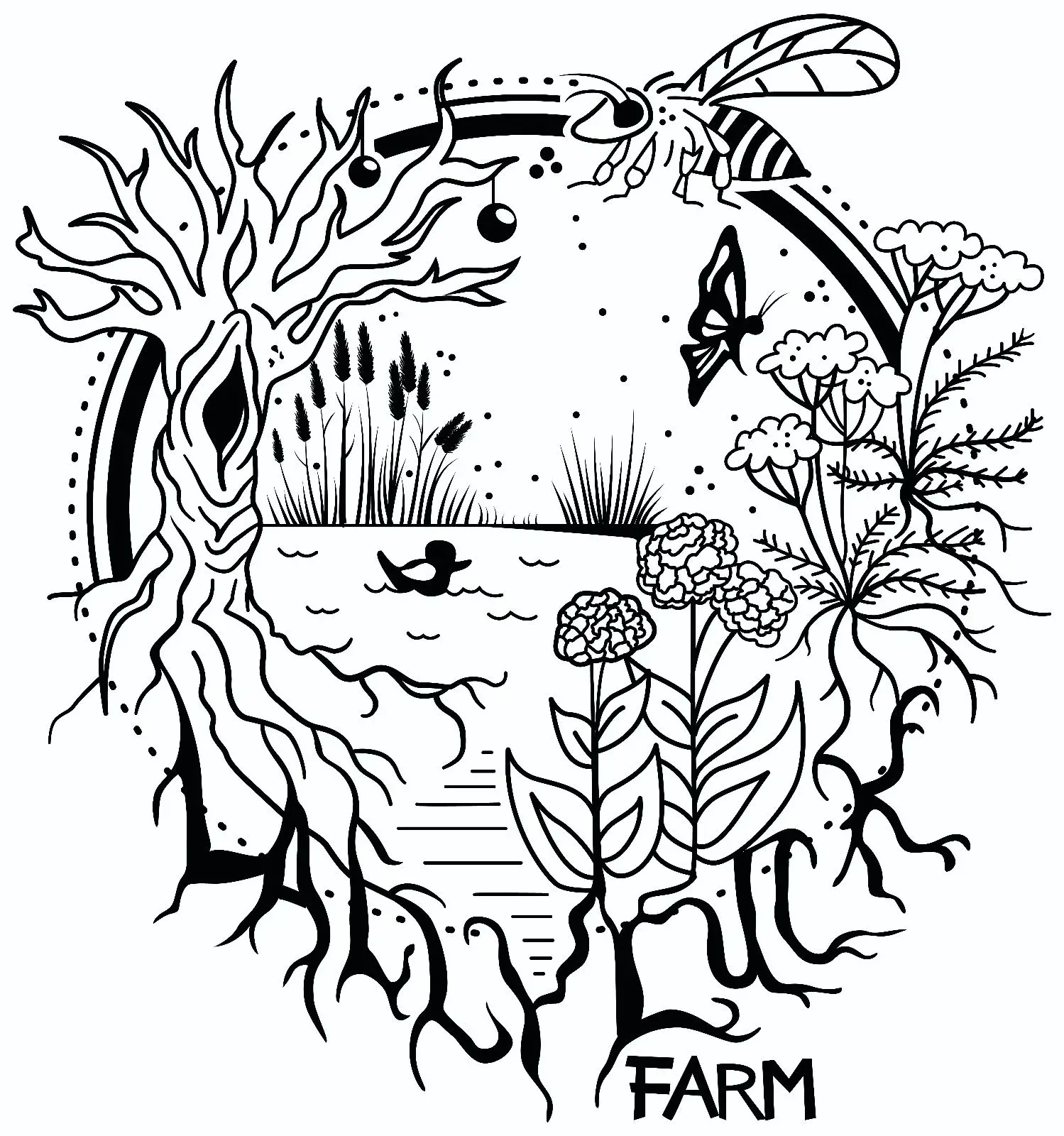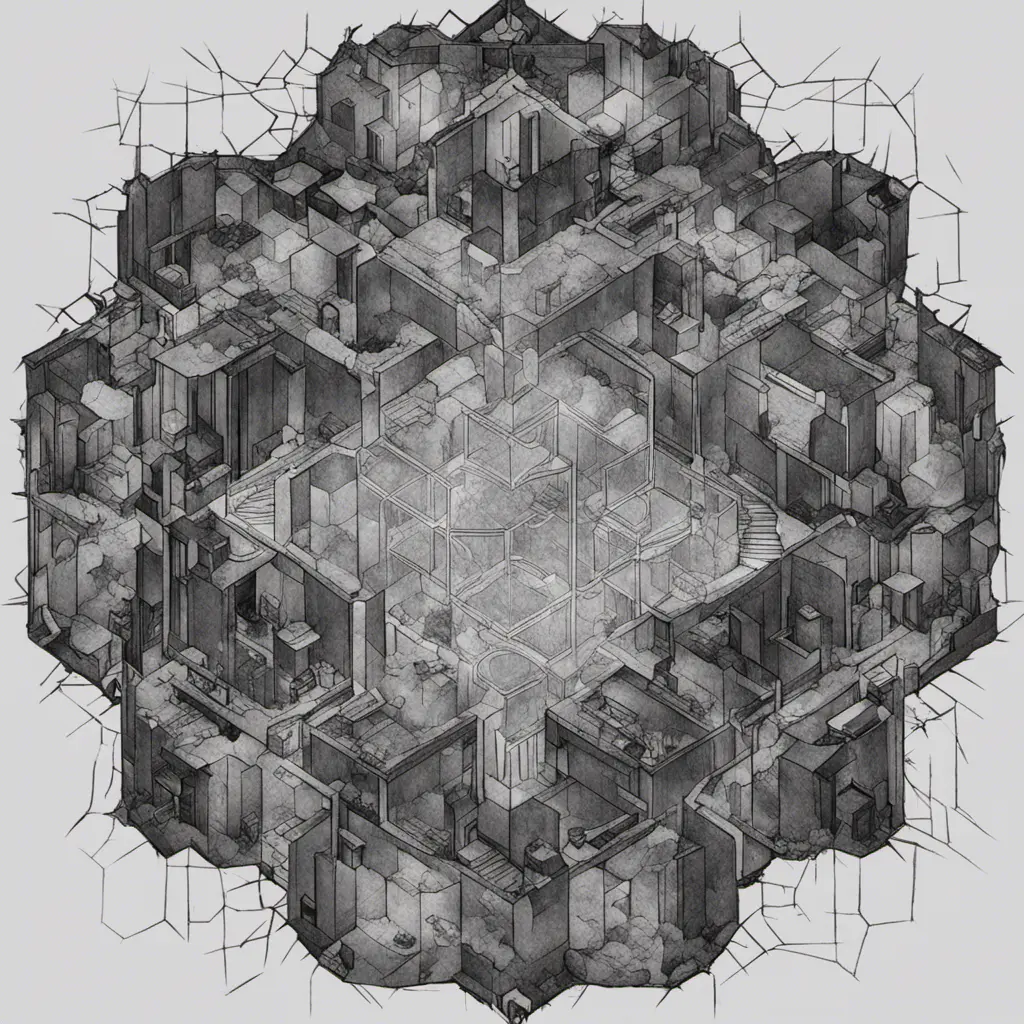That Auroraville map looks like garbage. “Progress Garden”, “Harmony Garden”, “Perfection Garden”, etc. sounds like it was dreamt up by some ‘spiritual’ type who was more concerned with hippy names than any genuine long term plan for a functioning town.
We need realistic plans for living spaces, done with an understanding of the local environment and the needs of the people. They need to be able to evolve and grow naturally as all towns do, not be centrally planned before construction by top-down planners.
Thats because it is.multi religious spirtual building with a public park around it. It does not show the buildings used in day to day life. The planning is not that great to be honest, but the place is working fairly well and has some really cool stuff going on. When you make it over 50years you do have a properly working community. The real plan is this:

I’ve never heard of an ecovillage, but just from context it sounds interesting. I’ve been drafting a bill to submit to my state legislature, and my emphasis has been on non-market housing and housing cooperatives. Basically housing cooperatives are collectively owned apartments, where all the tenants are the collective owners and elect a governing body. There is no profit on residency dues either, making it cheaper
Go! That’s an awesome thing to be doing. We need more diverse options like these. You are doing the right work.
I live in a “back-to-the-land” “ecovillage”. It’s a disaster and not very “eco” (depending on how you define it) but would I live anywhere else? No, I love it.
It was early permaculturalists having a shot with design and got a lot right, and some wrong. If the world didn’t double down on fuel extraction with the peak oil scare, then maybe it could have worked like any small rural township but personal cars are still dominant here. It’s just too far away from anything to work in that regard. A cooperative on a train line with fertile soils might be better.
I’m curious to hear your thoughts on what went right and what was done wrong, besides the isolation you’ve mentioned. It’s interesting how seemingly often projects like these don’t factor in the logistics of various resources they’ll need.
The place operates under a Body Corporate (or similar to a HOA), land is held in common (600 acres plus) and freehold lots make up the rest. You pay into common land management, you can work some back.
The best thing is the gravity fed reticulated water system fed from header tanks all at same altitude across property. It was the first of its kind designed. All houses have firefighting hydrants too. Dams are large and integrated into road surface. A recent project was Fibre to the Home done with a single pass tractor and blown fibre.
The freehold lots should have been put into trust so they don’t get bought and resold repeatedly for ever increasing prices. Originally they were $20K, now an empty lot is worth 450K and houses have hit 800K. Some lots have cycled for millions.
Internal roads are expensive to maintain as houses are spread out over ridges, leaving river flats open to agriculture. Could a light rail make sense? A single electric bus? It was the 80’s/early 90’s, cars have always been front and centre here.
Succession plans. An aged care facility should have been built, now there are people in their 80s rattling around in their houses and their lots go into disrepair. If property was held in trust, new younger owners could move in and with that, the energy to make change. As it is, most are renters and don’t give a fuck, and fair enough. No one young can buy in so new owners are always old.
Due to age, and some other factors (young people need money to work), no one volunteers for common land ecological maintenance which means barely anything gets done. Parties for personal enjoyment outnumber working bees by a factor of 100.
It was a back to the land, not really a cooperative business, not many streams for money making that would benefit more than a few. It’s just a subdivision in the bush that has a lot of plants planted in the 90s and early 2000s. It’s a high mix of exotics but wildlife has returned heavily so successful in that regard considering it was degraded when they started. It’s a mostly stunning place that has water needs sorted. There isn’t enough money in food production to warrant the planting of food production though small successful business have come and gone in market garden, bamboo, and nurseries.
Your response is greatly appreciated, thank you! I had a feeling that age dynamics of the group and the related challenges wouldn’t have been planned for. Likewise, water catchment and road placement were aspects I expected had been planned for extensively even if certain lifetime maintenance tasks might not have been.
Can you elaborate on what else worked and what didn’t?
I did make another reply, did you see it?
Ever increasing transport costs and maintenance, old age succession, internal economy, constant property price speculation as per standard capitalism, landlord class/renter class, drifting ideals once the permaculture buzz wore off, weeds and other degradations.
Beautiful regenerating natural landscape with gently integrated human habitation, rich water resources, social events, diverse exotic useful plants, wildlife, potential.
I keep trying to radicalize my HOA-laden friends to get some folks together and take over the boards in order to institute rules which would promote biodiversity, rather than sterile carbon copy neighborhoods.
Instead of fines for letting plants grow above certain heights, set ones for not having enough plants. Since that’s punitive and financially unavailable for some people, submit grant proposals and partnerships to have funding for additional plantings to support various threatened species or ecosystems as appropriate.
Is it possible to have a hoa coup? I think that would be interesting… Tiny revolutions within hoa’s. So small no one cares. Eventually everything is clean, green and healthy before anyone notices. Kind of like when eBay changed its background slowly from yellowish to white.
Lol
My understanding is that many of them have charters which have elected board positions, though there are some which are privately owned communities in which that is not the case. Those board meetings and elections tend to face the same engagement and participation challenges as municipal meetings and elections among the age groups best positioned/inclined to make the changes.
Armchair quarterback opinion, since I don’t have personal adult experience living in one, but I think it might be doable running with a “remove bs fees” position coupled with “remove petty board members” based on conversations with friends and internet strangers.
One thing that is not talked enough, and in fact it’s not discussed in this blog post also, it’s the need of staying away from parents for some time or more. Villages are just doomed to be abandoned by anyone who wants to explore any facets of society that need high density of population to be developed…
At this point is probably easier to just reclaim cities imo, aiming for the smaller ones
I prefer dreaming of self sustaining eco cities, with a tiny land footprint, so the area around it can be left to nature.
The Netherlands is already a pretty good model, not too far away from that.
Could you elaborate?
From the center of Amsterdam you can bike to a horse pasture in like 20 minutes. You can go from high density urban to farm land super fast. Farmers were heavily involved in constraining how the Netherlands urbanized, so you have a lot of dense cities surrounded by farms and forests.
It definitely isn’t self-sustaining, but it could be. The Netherlands is one of the biggest agricultural producers in Europe.
There’s tons of green space within the cities too… And bikea are the primary mode of transit.
It’s pretty close… About as close as you can get under capitalism.
I live in the Netherlands and I think it’s shit. There’s agriculture and construction everywhere! What little nature there is is always full of tourists.
I moved here from the US and you cannot possibly comprehend how much better it is. From the perspective of someone escaping the US, it’s one step away from an ecotopia. But yeah, it does suck in a lot of ways. There are still cars everywhere and I even see trucks sometimes. I don’t understand how y’all could have gone through the whole “Stop da Kindermoord” thing and still let in trucks.
There’s a lot of bad things to fix, but I haven’t seen anything closer to what I want and with two kids who are growing up I don’t have time or capacity to fight to make the US survivable.
It’s a good start that most of the rest of the world could copy and be far better off, even if it’s still a long way from optimal.
So do you eat your fries with mayonaise?
Perhaps not copy everything. :P
The thing I actually hate the most is the whole enclosure of the commons/foraging is illegal (or at least super gray area) thing. I’m an immigrant and I don’t want to go back, so I’m not about to see how far I can bend the law. But I also know there’s so much food that could be grown in the city and so much that could even be collected right now.
The Netherlands seems super domesticated.
Although the denser the city the farther you need to farm to feed that city.
Yap I was thinking futuristic with fusion power and vertical farming.
What’s wrong with smaller cities, with more evenly distributed population across countries, with density lowering as you move from the center? Reduces city impact, still promotes dense urbanization and reduces transportation costs if there is something being produces around the city. Also left to nature is a bit impossible in today’s world and promotes detachment from feeling like part of nature for most people. Most of Europe and north America is riddled with invasive species or just have been devastated by agriculture or deforestation in the last centuries and if managed correctly which can mean leave it alone humans can have a positive impact on the world. If you could create forests in the desert with plants from around it, wouldn’t that be positive?
🤐









